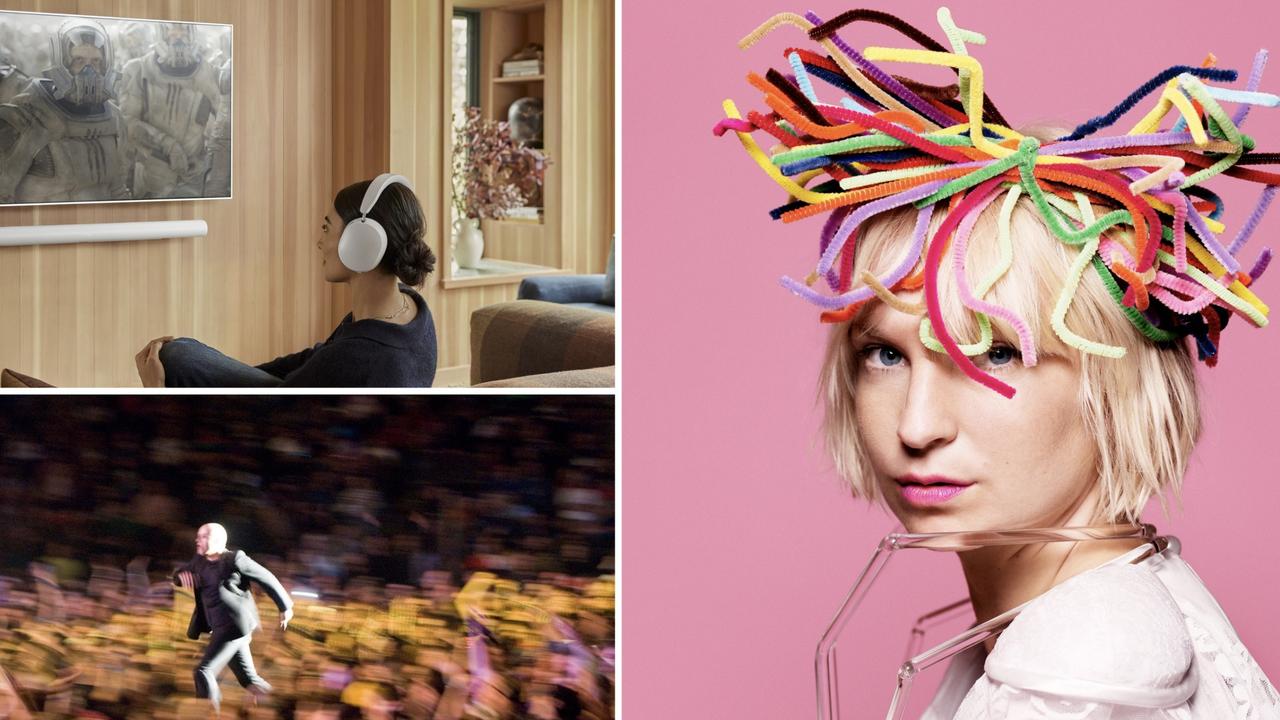Senior Amazon executive admits some people don’t trust them as the company bets big on sound quality
Amazon has introduced its best sounding Alexa smart speaker, with a variety of new measures to offer peace of mind over privacy.
A senior level Amazon executive says most of its customers do trust the company to respect their privacy, despite widely publicised failings that have forced it to include extra assurances on its newest addition to the burgeoning smart speaker market.
Amazon is betting big on sound quality as it seeks to claw back some of the Australian smart speaker market currently dominated by Google.
The eCommerce giant first brought its suite of Echo smart speakers and displays powered by its digital voice assistant Alexa down under around 18 months ago, but has recently added a new one to the line-up.
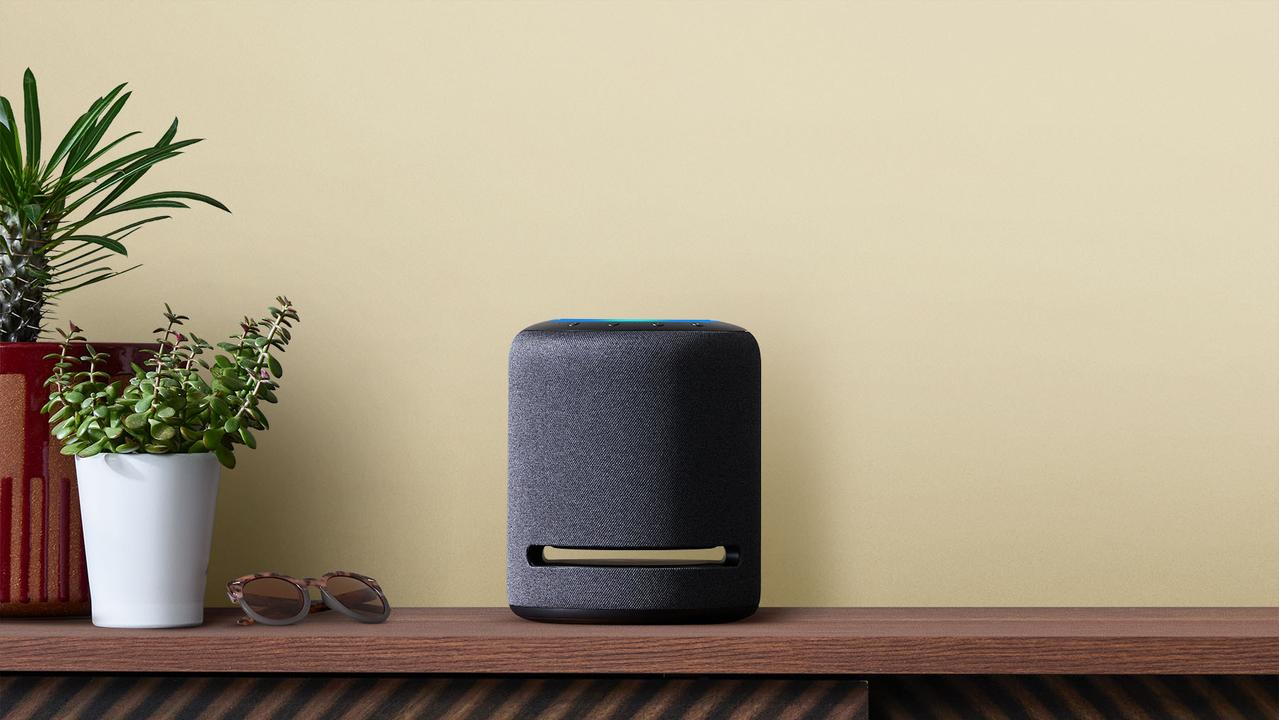
The Echo Studio ($329) is the company’s best sounding speaker yet, using multi-directional speakers, automatic room acoustic sensing technology, and Dolby’s Atmos processing to deliver impressive and immersive sound, especially for a speaker at this price range.
“You have to hear it to believe it, it’s a pretty powerful sounding speaker,” Amazon’s vice president of Alexa and devices Miriam Daniel told news.com.au.
Amazon’s recent transformation into an audio business is no less strange than its evolution from a quaint online bookseller into one of the world’s biggest companies many now believe is too big for it’s — and our — own good, but Mrs Daniel said the company is now serious about its speaker credentials.
“We never thought of ourselves as a speaker brand,” she said.
“We were putting out a smart speaker for sure, it was a new category, but by no means was it the best sounding speaker at a certain price point.”
But she said the sound improved with each new device, and was now a point of customer demand.
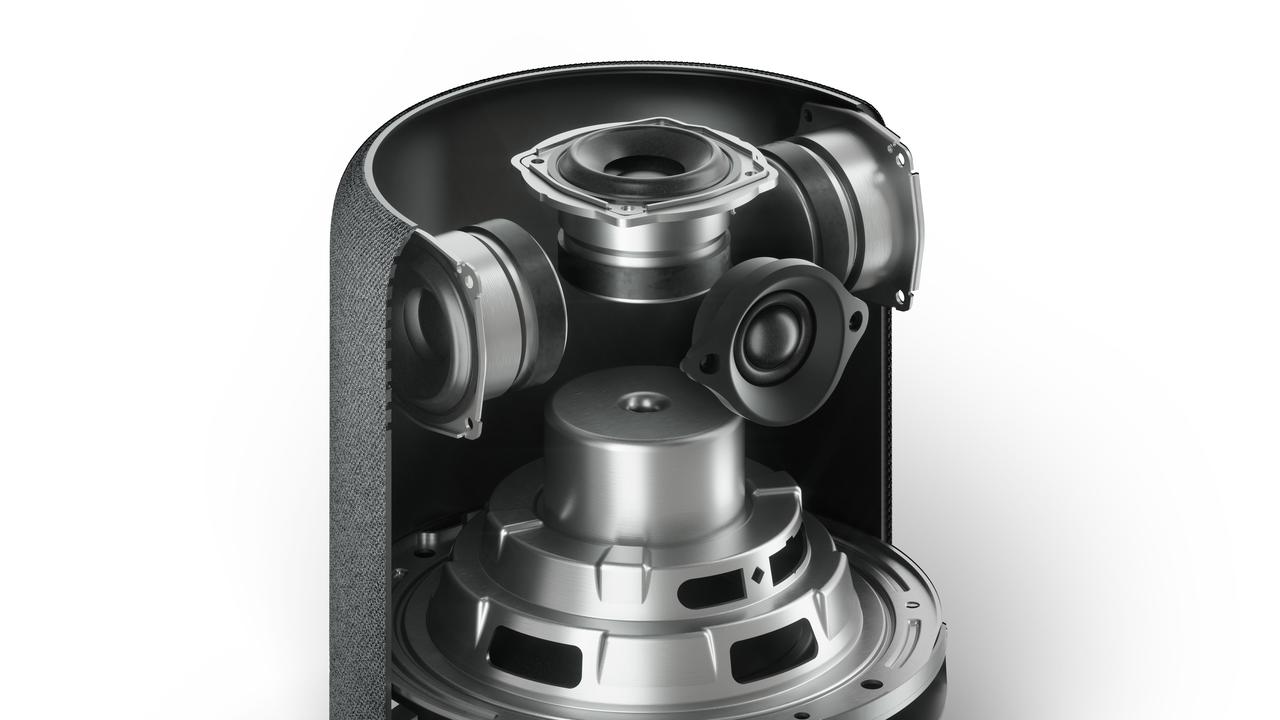
“The audio quality was something we were continuing to improve and customers were loving it, so now they expect us to do higher and higher quality.”
The Amazon Studio doesn’t just sound better than all the other Alexa speakers before it, it also cranks up to a significantly higher volume, and will easily fill pretty much any room in your home. There are ten volume levels, and while volume is normalised across all the speakers up to the sixth level, once you pass that the Studio gets into neighbours-complaining territory.
Amazon hopes the new focus on audio quality (complemented by its lossless streaming platform Amazon Music Unlimited) will resonate with customers.
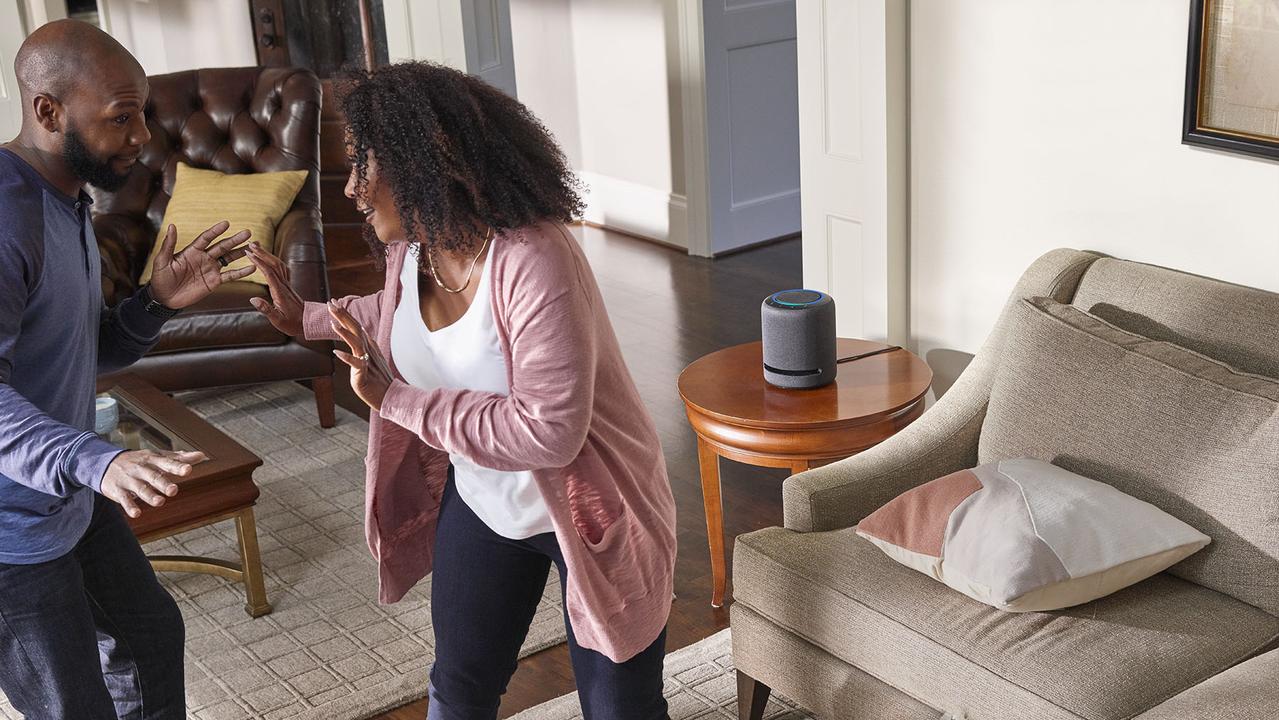
Recent data from Telsyte showed Google held a massive 72 per cent of the Australian smart speaker market, while Amazon was the second most popular with 15 per cent of the market.
This could be due to Google’s earlier entrance, higher brand recognition, or penchant for giving away its smart speakers at any opportunity, even going so far as to include them in the orders of online grocery shoppers without them adding it to their cart.
Amazon doesn’t play the same game, however.
RELATED: Global tech companies must be subject to the rule of law
“What we focus on is giving them better value for their money,” Mrs Daniel said. “For example, we do bundles with smart home devices. That’s better value for money, now you can get a smart plug with a smart speaker and now you can control something in your home. That actually drives engagement and drives usage, what’s the point in just giving away something and they just put it in a draw and not use it?”

The people who do use their smart speakers, regardless of how they get them, are also coming up with new ways of doing so.
RELATED: Alexa calls the cops on ‘abusive’ boyfriend
“We don’t position our devices as baby monitors, however people are putting them in different rooms so they can drop in and check on the babies,” Mrs Daniel said as an example. “People are discovering new ways to find utility out of it.”
This isn’t all good news for Amazon, however.
Earlier this year the company came under considerable scrutiny for its handling of recordings collected by Alexa smart speakers after it emerged the company was holding onto and transcribing recordings, including of children.
Many of the recordings Amazon collected were also listened to by human contractors tasked with improving the Alexa experience.
This practice is not exclusive to Amazon. Google Assistant, Apple’s Siri, and even Microsoft’s barely used Cortana were all exposed as doing the same thing, prompting the introduction of clearer data collection and analysis policies.
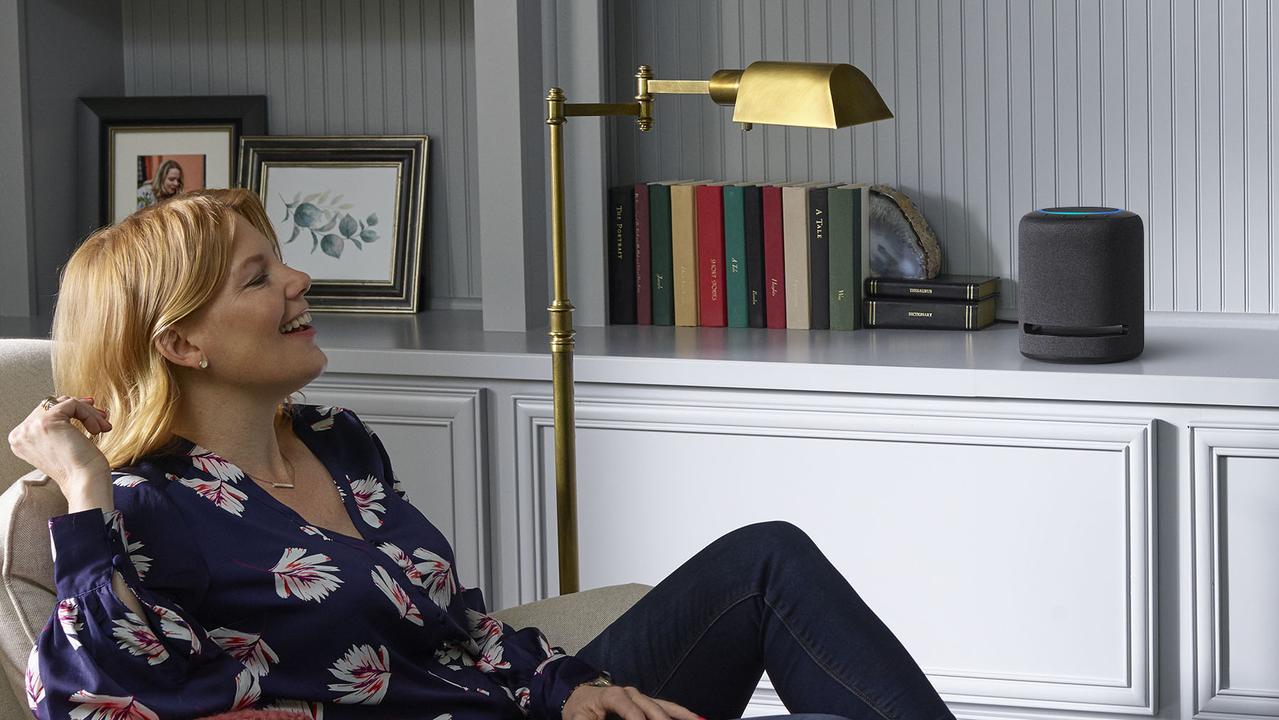
Amazon for instance, now allows Alexa users to configure their accounts so stored data is automatically deleted every three months or 18 months.
You can also ask Alexa to forget everything you’ve said to it that day, but doing so has its pitfalls as this means things you want kept, like tasks or events you’ve asked Alexa to remind you about, can also be deleted.
RELATED: Amazon employs thousands to listen to conversations
“We take privacy and security very seriously,” Mrs Daniel said. “Since day one we’ve built it in layers, it’s not a one-size-fits-all. When it comes to data, we try to make sure all the data is anonymised. There was annotation going on but it was in an anonymised fashion, that was the intent. But we took a position and we recently announced customers can automatically delete the data,” Mrs Daniel said.
It might not be enough to convince everyone.
The Australian Competition and Consumer Commission chair Rod Sims, for instance, is unlikely to be picking up the new Echo Studio, regardless of how good it sounds.
“Why do I want a device listening to everything I say?” Mr Sims said earlier this year as he continued the ACCC’s scrutineering of big tech companies like Amazon, Google and Apple that has attracted attention around the world.
“If people want to have these devices in their homes … they need to know in really clear terms which they don’t now … how much information is going back to home base, what exactly is being done with it and who it is going to,” Mr Sims said, months before Amazon announced the new methods for deleting Alexa data.
According to Mrs Daniel, consumers were willing to live with the microphones in their home if they got enough use out of the technology.
“There are always going to be people who are not comfortable with this, that’s a personal choice. But there are a lot of other users where we try to educate them on all the controls we have put in their hands. We try to educate them about the controls we have put on ourselves, and be as transparent as possible. If they find enough utility they’re willing to use it. We let it be their personal choice.”
But how many of these customers actually trust the big tech companies?
“A lot of people do [trust us] … and some don’t,” Mrs Daniel conceded. “I think it’s only right for consumers and people who do policy work to scrutinise us, Amazon has said that widely, we should always be open to scrutiny and if there’s room for us to improve we will improve it.”
“One of the things we’ve focused on for example is the trust and the assurance that if you see a red light on that mute button, the microphones are not listening to you. If that was software programmed you could worry about it being hacked remotely, but we hardwired the microphone to the red LED, there’s no way to keep it red and have you think it’s not listening when it’s actually listening.”
But the Echo Studio also has another hidden feature that you can use to stop the microphones listening in, as exclusively revealed to news.com.au earlier this week.
Turning the Echo Studio up to its ear-splitting full volume also stops it being able to hear anything you say, whether you want it listening or not.
Do you have a smart speaker in your home or do you not trust them? Let us know what you think in the comments below.



